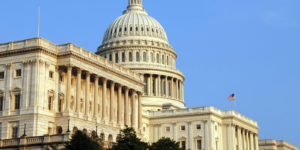
The aforementioned legislation aims to replace portions of the Affordable Care Act and to reduce the federal budget deficit by setting limits on medical malpractice lawsuits involving healthcare covered or subsidized by the government. Specifically, the bill restricts lower-income people on Medicaid, older Americans on Medicare, and citizens who have private health insurance that is subsidized by the ACA.
It sets limits on medical malpractice lawsuits against physicians, hospitals, and nursing homes, as well as product liability claims involving defective drugs and medical devices. In the realm of product liability, it prevents victims harmed by defective drugs and medical devices that are approved, licensed, or cleared by the Food and Drug Administration (FDA), from naming the doctor who prescribed the drug or medical device, as well as the pharmacist who filled the prescription, in a product liability lawsuit.
Proposed Limits on Non-Economic Damages
Additionally, the bill sets a new limit for “non-economic damages” at $250,000. So, what does this mean for medical malpractice victims? In a medical malpractice lawsuit, there are several types of damages. Compensatory damages, meant to compensate a victim (plaintiff) who brings a medical malpractice claim, are further delineated into economic and non-economic categories. Economic damages are intended to reimburse the plaintiff for financial losses incurred. These may include medical expenses, loss of income, rehabilitative treatment, and necessary future accommodations. As for non-economic damages, these are more intangible, meant to compensate the victim for pain and suffering, which includes emotional trauma and mental distress.
While some states have already imposed limits on non-economic damages in medical malpractice cases, New Jersey imposes no such restrictions. This bill will clearly and profoundly alter current policy in New Jersey, spelling long-term implications for victims of medical malpractice.
Arguments on Both Sides of the Issue
Proponents of the bill say that setting medical malpractice limits will slow the growth of healthcare spending and reduce health costs overall. Further, they claim that doctors will order fewer unnecessary diagnostic tests and procedures aimed at protecting themselves from medical malpractice lawsuits. This practice is often referred to as “defense medicine,” and has been a source of conflict among those in the medical community and medical malpractice insurers for years. According to the Congressional Budget Office, the bill will reduce budget deficits by nearly $50 billion over the next 10 years.
On the other hand, opponents of the new legislation point out that it adversely impacts anyone who uses a federal
program, subsidy, or tax benefit to obtain health insurance. Essentially, it discriminates against those who have suffered harm as a result of medical errors and negligence simply because of their source of medical coverage. Notably, even the most severe and catastrophic errors, such as leaving foreign objects in a patient’s body during surgery, would be covered under the bill. The underlying question as it relates to this proposed legislation is: How can the law prevent some victims of medical malpractice from recovering full restitution, while allowing others to pursue unlimited damages?
Our New Jersey Medical Malpractice Attorneys Fight for All Victims
At Fronzuto Law Group, our New Jersey medical malpractice attorneys are committed to holding negligent medical professionals and facilities accountable for the suffering they have caused. We work tirelessly on behalf of each and every client to recover maximum compensation, providing support and guidance every step of the way. If you or someone you love sustained an injury as a result of medical malpractice or a defective product, contact our North Jersey offices today at 973.435.4551 to discuss your case and learn more about your legal options.
For additional information pertaining to this issue, access the following article: G.O.P. Bill Would Make Moredical Malpractice Suits Harder to Win

